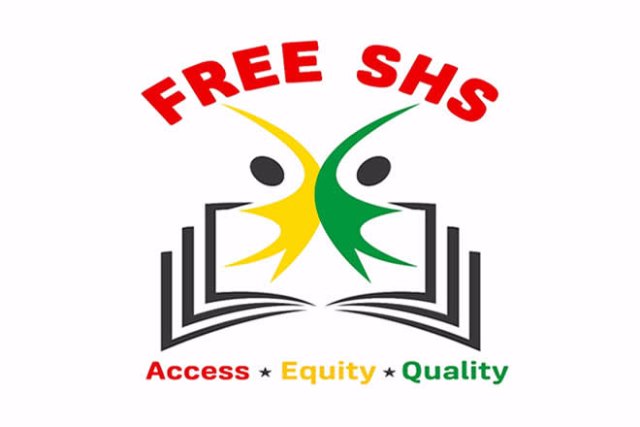“Free secondary school takes off in Ghana”
October 12th, 2017 Ghana has taken a bold step by introducing free senior high school education. Nutifafa Geh, a Commonwealth Correspondent alumni from Ho in Ghana, writes that the programme is earning praise and support.
Ghana has taken a bold step by introducing free senior high school education. Nutifafa Geh, a Commonwealth Correspondent alumni from Ho in Ghana, writes that the programme is earning praise and support.
Education is power and an enabler, and to remove the financial barrier in accessing secondary education, the President of the Republic, Nana Addo Dankwa Akufo-Addo, on Tuesday, 12th September, 2017, launched the Free Senior High School Policy.
Under the Free SHS Policy, the government will be bearing the cost of tuition, textbooks, meals, library usage, examination, uniforms and other agreed school charges on behalf of students who qualify for admission into SHSs. The policy also covers students who gain admission to agricultural, vocational and technical institutions at the high school level.
For the past years, basic education in Ghana was free under the Free Compulsory Universal Basic Education (FCUBE), and the addition of secondary school to ‘free education’ will help put money back into the pocket of parents. On the whole, parents and guardians were happy with the introduction of the Free SHS policy and they lauded government for the bold initiative, and also expressed the hope that it will be sustained long into the future.
Until this new policy, formal education in Ghana started with two years of kindergarten, after which six years of study is required at primary school. After primary school, students proceed to junior high school (JHS), and at the end of three years of study, it is expected that students write the Basic Education Certification Examination (BECE) to qualify for enrollment at Senior High School (SHS) or Technical & Vocational Institutions across the country.
It was reported that in 2017, a total of 468,053 candidates from 15,185 JHS wrote BECE. The number of male candidates were 241,148 while 226,905 were females.
Placement of students into SHS is very competitive, and presently government of Ghana runs the placement of students into SHSs under the program called Computerized School Selection and Placement System. This system allows students to choose their preferred SHS while registering for the West African Senior School Certificate Examination. There is also an option for students to privately seek placement into SHSs.
The estimated cost for implementation of the Free SHS policy is forecast to bet GHS 486 million in its first year, and the President confirmed that revenues from the country’s mineral and oil resources will be used to fund the policy.
Government believes the free SHS policy adds value to the existing free primary and junior high school policies, to make pre-tertiary education a totally free undertaking that would eventually position Ghana to enhance the quality of its human capital to boost national development.
The private sector education stakeholders, however, expressed their dissatisfaction due to non-inclusion of private senior high schools under the Free SHS policy. The association of private senior high schools is therefore calling on Government to also extend the policy to cover students in private senior high schools.
The Sustainable Development Goals provide a good working framework for governments, and target 4.1 is to ensure that all girls and boys complete free, equitable and quality primary and secondary education leading to relevant and effective learning outcomes by 2030. According to Sustainable Development Knowledge Platform, achieving inclusive and equitable quality education for all requires increasing efforts, especially in sub-Saharan Africa and Southern Asia and for vulnerable populations, including persons with disabilities, Indigenous people, refugee children and poor children in rural areas. It is therefore praiseworthy that the government of Ghana initiated the Free SHS policy, thereby increasing the country’s potential for achieving the SDG goal for inclusive and equitable education.
A British Broadcasting Corporation report on free SHS in Ghana can be viewed here.:
Photo Credit: Government of Ghana
…………………………………………………………………………………………………
About me: My name is Nutifafa and I am for students (#Iam4Students). I believe what wings are to a bird is what education is to every boy and girl whether young or old. For that reason, my interest in education is very keen, and it is a joy for me to give a hand in empowering students to reach their full potential.
I love life and photography, and I believe I can make students smile by giving them the reason to.
…………………………………………………………………………………………………
Opinions expressed in this article are those of the author and do not necessarily represent the views of the Commonwealth Youth Programme. Articles are published in a spirit of dialogue, respect and understanding. If you disagree, why not submit a response?
To learn more about becoming a Commonwealth Correspondent please visit: http://www.yourcommonwealth.org/submit-articles/




